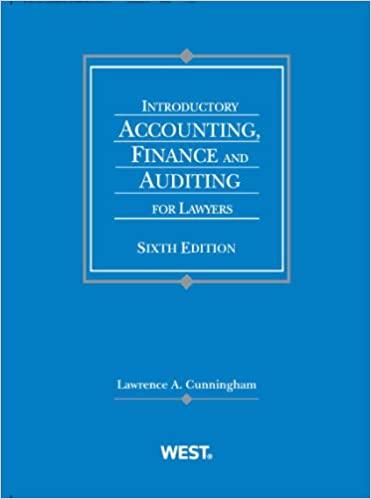
Question 3: The Big Picture Economics and Accounting: The Uncongenial Twins Kenneth E. Boulding, Professor of Economics, University of Michigan, 1962 Economics and accountancy are two disciplines which draw their raw material from much the same mines. From these raw materials, however, they seem to fashion remarkably different products. They both study the operations of firms; they both are concerned with such concepts as income, expenditure, profits, capital, value, and prices. In spite of an apparently common subject-matter, however, they often seem to inhabit totally different worlds, between which there is remarkably little communication. It is not surprising that the economist regards much accounting procedure as in the nature of ritual. To call these procedures ritualistic is in no way to deny or decry their validity. Ritual is always the proper response when a man has to give an answer to a question, the answer to which he cannot really know. Ritual under these circumstances has two functions. It is comforting (and in the face of the great uncertainties of the future, comfort is not to be despised), and it is also an answer sufficient for action. It is the sufficient answer rather than the right answer which the accountant really seeks. Under these circumstances, however, it is important that we should know what the accountant's answer means, which means that we should know what procedure he has employed. The wise businessman will not believe his accountant although he takes what his accountant tells him as important evidence. The quality of that evidence, however, depends in considerable degree on the simplicity of the procedures and the awareness which we have of them. What the accountant tells us may not be true, but, if we know what he has done, we have a fair idea of what it means. For this reason, I am somewhat suspicious of many current efforts to reform accounting in the direction of making it more "accurate." If accounts are bound to be untruths anyhow, as I have argued, there is much to be said for the simple untruth as against a complicated untruth, for if the untruth is simple, it seems to me that we have a fair chance of knowing what kind of an untruth it is. A known untruth is much better than a lie, and provided that the accounting rituals are well known and understood, accounting may be untrue but it is not lies; it does not deceive because we know that it does not tell the truth, and we are able to make our own adjustment in each individual case, using the results of the accountant as evidence rather than as definitive information. Required 1. Assume that accounting procedures are in the form of ritual. Does this imply that the accountant's product does not serve a useful function? Discuss. 2. Do you think Dr. Boulding would support FASB's efforts to include more fair value information on balance sheets and income statements? Explain your







